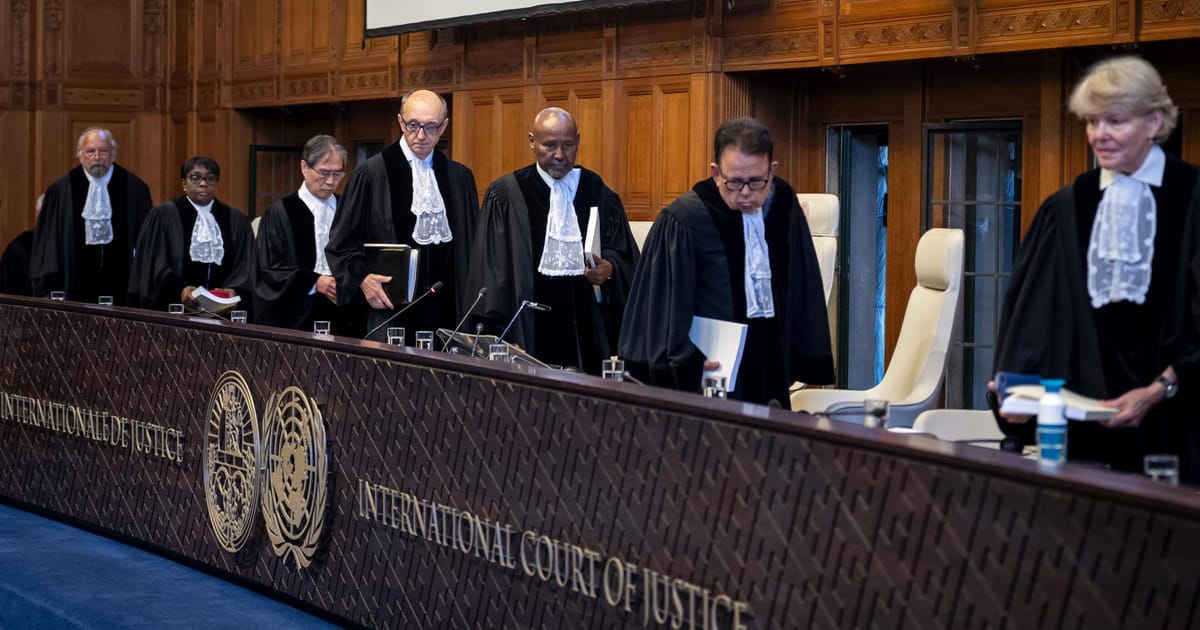

In a significant development on the international legal stage, the International Court of Justice (ICJ) has delivered a landmark advisory opinion stressing the global responsibility to combat climate change. The court has asserted that the non-participation of countries in the Paris Agreement does not absolve them from the obligation to address global warming, highlighting a universal accountability to our planet’s wellbeing.
This ruling underscores that climate inaction could potentially breach international law, a sentiment resonating throughout the legal community and environmental advocacy groups. By framing climate action as a crucial duty, the ICJ emphasizes that neglecting to prevent harm to the climate system could result in countries facing legal consequences, such as paying reparations or providing restitution for damages caused by their inaction. This establishes a precedent that environmental responsibility transcends international treaties, merging environmental stewardship with human rights principles.
Amidst growing recognition of climate change as a pervasive global issue, the ICJ’s ruling is pivotal in advocating for proactive measures by nations worldwide. The advisory opinion echoes the sentiment that a healthy environment is inherently linked to human rights, advancing the idea that sustainable development should be a cornerstone of national policies worldwide. By singling out fossil fuels as a significant focus, the court reinforces the urgency of transitioning to renewable energy sources—a shift that is vital for the preservation of ecosystems and human societies alike.
Accompanying this development are scientific concerns about the tangible effects of climate inaction. In Australia, recent reports highlight the alarming impacts of a marine heatwave off the coast of South Australia, which has triggered a severe algal bloom threatening local biodiversity. Experts and scientists are likening the ecological damage to Australia’s catastrophic black summer bushfires, calling for an urgent governmental response to protect vulnerable species and ecosystems.
As governing bodies contemplate long-term strategies to mitigate these emergent environmental crises, the ICJ’s directive comes as a reminder of the shared responsibility to nurture and protect our natural environment. The ruling encourages countries to act collectively and individually, strengthening their commitments to environmental policies that prioritize the health of the planet. This, in turn, fosters a global community where the right to a clean and safe environment is universally safeguarded.
The international emphasis on environmental stewardship is echoed in various global platforms as countries move towards sustainable development. By embracing clean energy transitions, investing in green technologies, and supporting conservation efforts, nations can align with the mission articulated by the ICJ. The path towards climate resilience and sustainability is clear, urging collective action to ensure a harmonious coexistence with nature for future generations.
As the global community reflects on these developments, the overarching message remains one of hope and concerted action. The ICJ’s ruling serves as a beacon, guiding nations towards policies rooted in ecological balance and justice. In nurturing this common bond with our Earth, we find a renewed sense of purpose, collectively geared towards the preservation and flourishing of our shared home. The challenges posed by climate change require not only immediate action but also long-term commitment to change—a commitment that promises a brighter, more sustainable future for all.
Source: {link}
